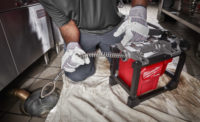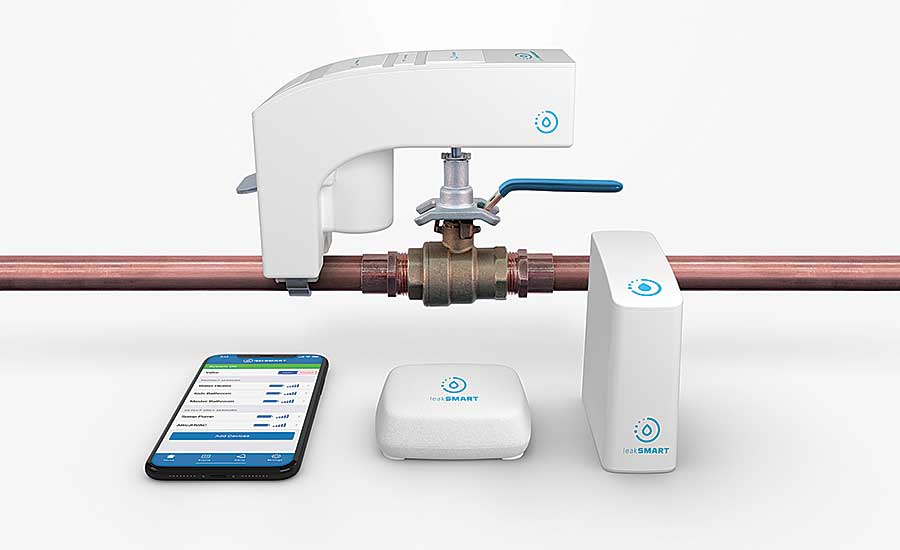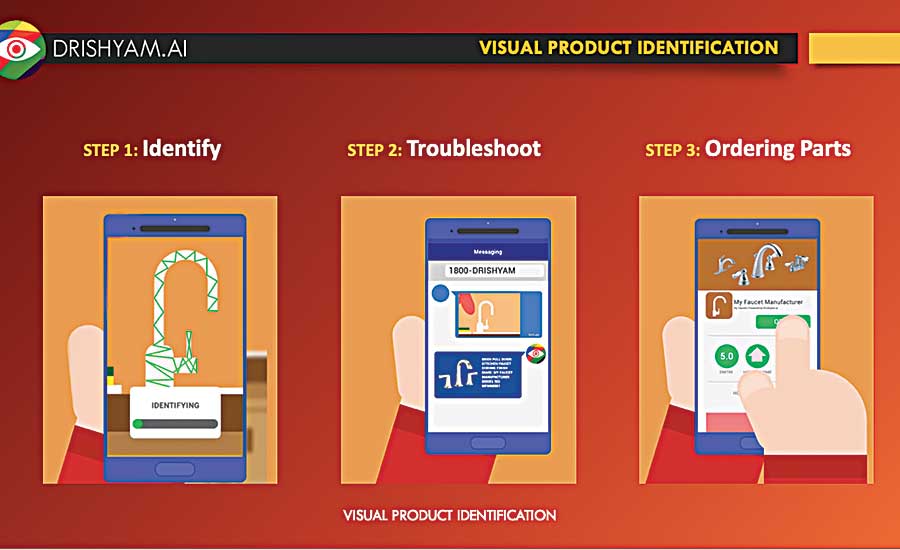Smart plumbing products continue to evolve
Manufacturers show no signs of slowing down when it comes to connected products and technology in the PHCP space.

LeakSmart, a manufacturer of leak-protection products, is focused on training for Its smart products. “While there isn’t standardized training in this category, many manufacturers, including LeakSmart, are shoring up this gap by offering both onsite and online training to contractors,” LeakSmart’s John Holzheimer says. Photo courtesy of LeakSmart.

Drishyam AI builds custom chatbots that automate customer support for manufacturers. “Now is a great time to apply AI to streamline traditional business processes to make them efficient,” CEO and Co-Founder Satish Mandalika says. Photo courtesy of Drishyam AI.


The recent AHR Expo and KBIS-IBS tradeshows were chock full of smart/connected products. And from conversations with manufacturers of these products there is no slowing down in terms of the amount being produced and the continued evolution of smart/connected technologies.
“Visiting the Consumers Electronics Show recently, it became readily apparent that smart-home technology is increasingly becoming an industry standard in the plumbing category,” says John Holzheimer, vice president, manufacturing and supply chain management at Waxman Consumer Products, the parent company of leak-detection product manufacturer LeakSmart.
“While you are seeing established and startup brands coming at it from different and exciting directions, more and more products are increasingly coming into the fold.”
Holzheimer adds with the onslaught of this technology, proper training becomes an essential component. “While smart-home technology remains a part of most plumbers’ residential business, they are eager to learn how to get smart in this category,” he says. “And while there isn’t standardized training in this category, many manufacturers, including LeakSmart, are shoring up this gap by offering both onsite and online training to contractors.”
LeakSmart introduced its LeakSmart Pro Portal this month where contractors can find articles, videos, toolkits, fast facts and receive training and certification.
Artificial intelligence or AI also is making strong headway into the industry. Drishyam AI is a Northern California-based company with software that allows someone to take a picture of the product/part they are looking for and the software identifies the make and model.
“Now is a great time to apply AI to streamline traditional business processes to make them efficient,” Drishyam AI CEO and Co-Founder Satish Mandalika says. “Take the case of customer service for plumbing manufacturers. When your faucet breaks down, you call into support. You are expected to know the make and model of the product you need support for. What if a customer could take a picture and learn everything about the product, including make and model and pricing information? This could lead to other interesting use cases in the future such as automated troubleshooting and automated parts ordering.”
Mandalika says with the advent of smart/connected products and technologies, customers’ needs in the space are on the upswing as well. “Customers want smart products to get better by offering a much more personalized service without compromising on security,” he says. “The general trend in the smart-product technology is the application of AI to make the life of the end consumer better. This could include enabling AI in personal devices, such as Fitbits and other health monitors to building smarter shopping experiences using AI-based predictive analytics.”
As for the future of this constantly expanding space, LeakSmart’s Holzheimer sees zero slowing down. “We only expect smart-home technology in the plumbing category to grow,” he says. “The big players such as Google and Amazon use this technology to collect data, which manufacturers can utilize to create better products and convenience, such as the Amazon Dash button to reorder toilet tissue at the push of a button. All of this data does not only benefit the manufacturer, however. As plumbers get involved in the smart category, they will be able to be more productive in assisting customers, from detecting and stopping leaks to making verified house calls through smart doorbells.”
Looking for a reprint of this article?
From high-res PDFs to custom plaques, order your copy today!









